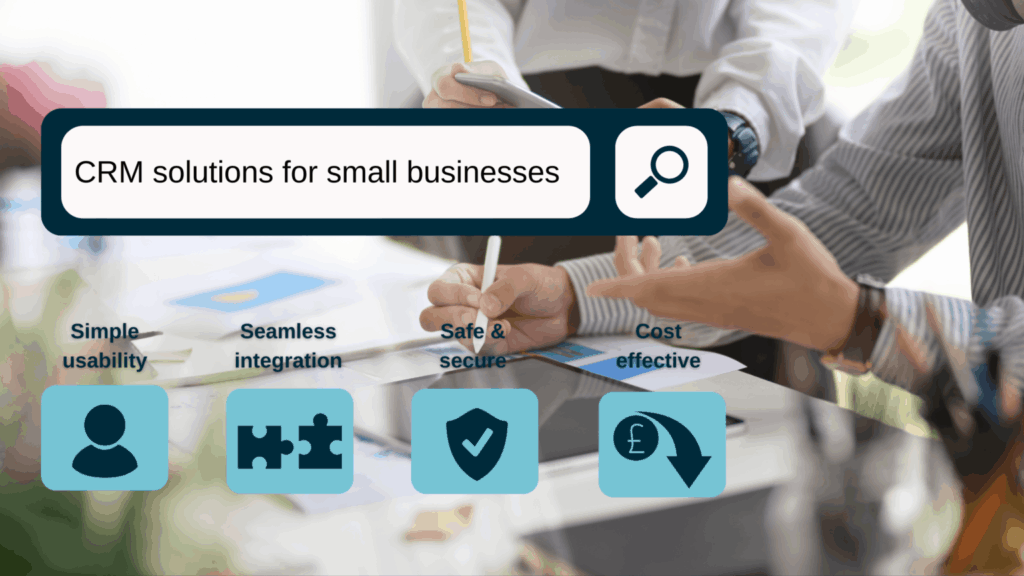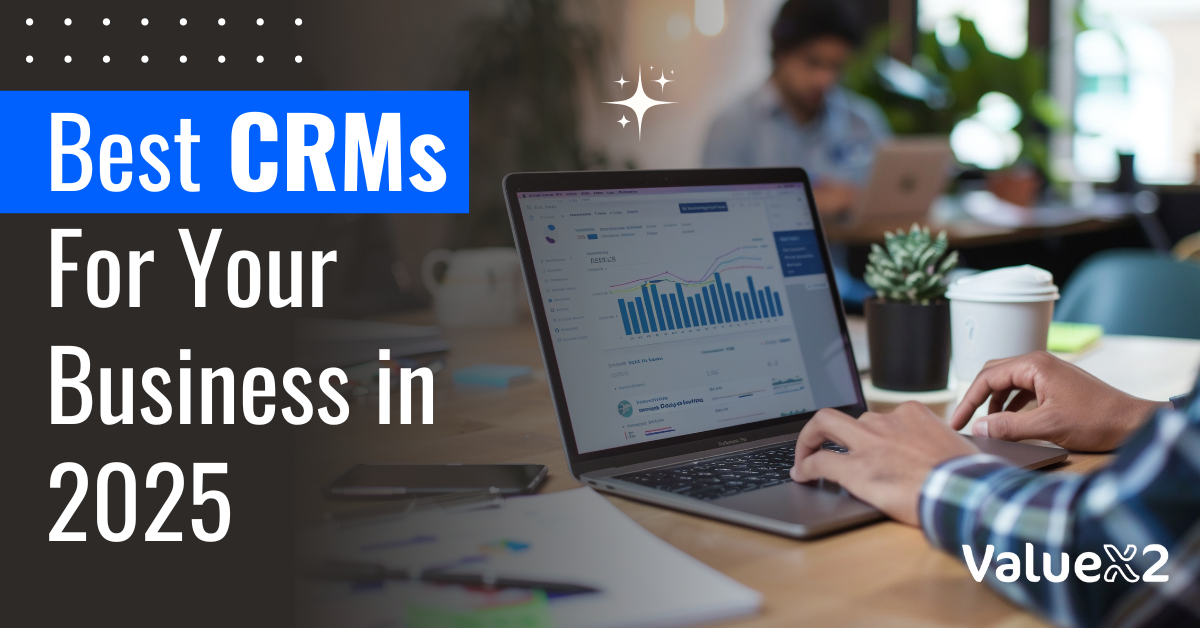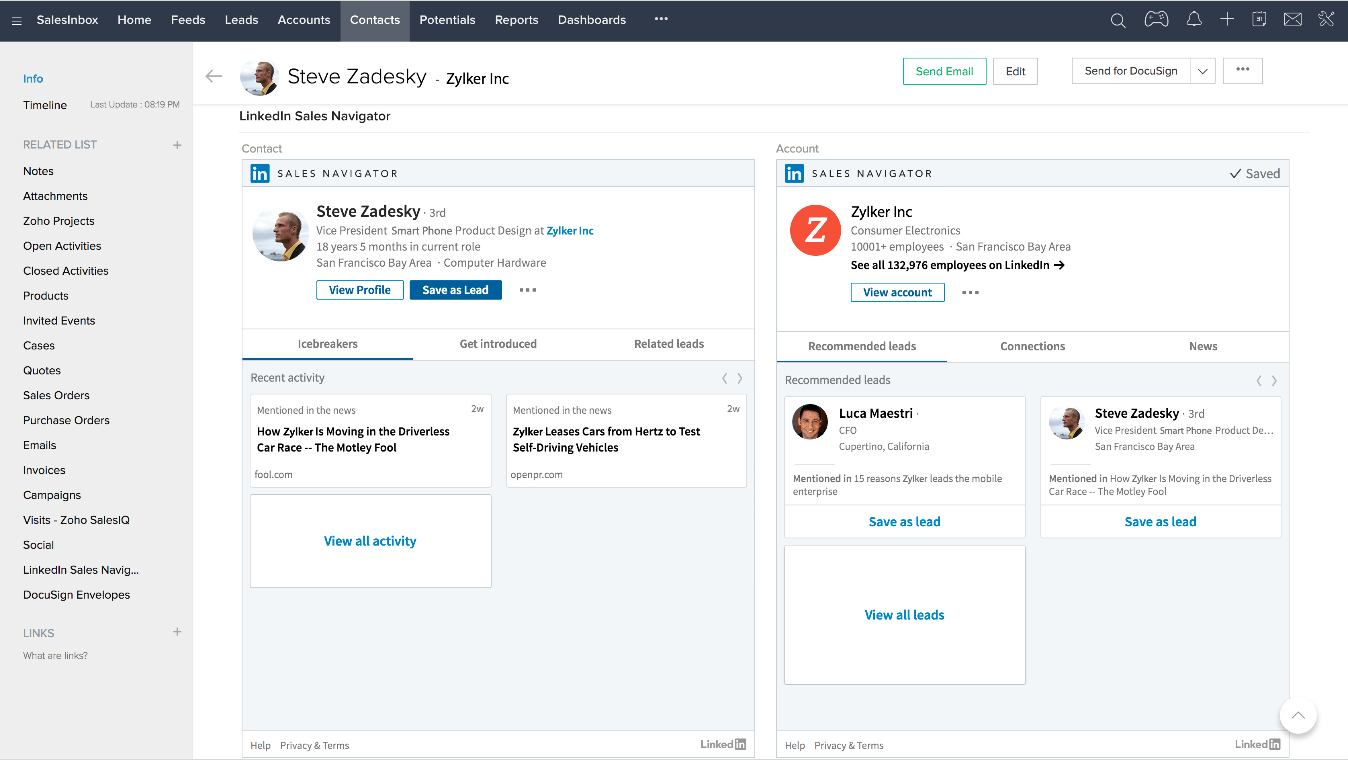Fortifying Your Fortress: A Comprehensive Guide to CRM Security for Small Businesses

Introduction: The Cornerstone of Small Business Security
In the dynamic world of small businesses, where every resource counts and every client matters, the Customer Relationship Management (CRM) system has become more than just a tool; it’s the central nervous system. It’s where you store vital client information, track interactions, manage sales pipelines, and ultimately, drive revenue. However, this digital hub, while invaluable, also presents a significant security challenge. In an era of increasingly sophisticated cyber threats, securing your CRM is no longer optional; it’s a fundamental requirement for survival and sustained growth.
This comprehensive guide delves into the critical aspects of CRM security specifically tailored for small businesses. We’ll explore the vulnerabilities, the risks, and the practical strategies you can implement to safeguard your valuable data. We’ll navigate the landscape of threats, from phishing scams to data breaches, and equip you with the knowledge and tools to build a robust security posture. This isn’t just about ticking boxes; it’s about fostering a culture of security that protects your business, your clients, and your future.
Understanding the Stakes: Why CRM Security Matters
Before we dive into the ‘how,’ let’s address the ‘why.’ Why is CRM security so crucial for small businesses? The answer lies in the potential consequences of a security breach:
- Financial Loss: Data breaches can lead to significant financial losses, including recovery costs, legal fees, regulatory fines, and lost business due to reputational damage.
- Reputational Damage: A security breach can severely damage your reputation, eroding customer trust and making it difficult to attract new clients. In today’s interconnected world, news of a breach spreads rapidly, potentially impacting your brand for years to come.
- Legal and Regulatory Issues: Depending on the industry and the type of data you handle, you may be subject to strict data privacy regulations. A breach can lead to non-compliance penalties and legal action.
- Loss of Competitive Advantage: Losing access to your CRM data can cripple your operations, impacting sales, marketing, and customer service. This can give your competitors a significant advantage.
- Intellectual Property Theft: Your CRM may contain valuable intellectual property, such as marketing strategies, pricing models, and client lists. A breach could expose this information to competitors.
For a small business, even a minor security incident can have devastating consequences. Your reputation is often your most valuable asset, and protecting it should be a top priority.
Common CRM Security Threats and Vulnerabilities
The threat landscape is constantly evolving, and understanding the common vulnerabilities is the first step in building a strong defense. Here are some of the most prevalent threats that small businesses face:
1. Phishing Attacks
Phishing remains one of the most common and successful attack vectors. Cybercriminals often use deceptive emails, text messages, or phone calls to trick employees into revealing sensitive information, such as login credentials or credit card details. These attacks can be highly targeted, making them difficult to detect.
2. Malware and Ransomware
Malware, including ransomware, can infect your systems through various means, such as malicious attachments, compromised websites, or infected software. Ransomware encrypts your data and demands a ransom payment for its release, potentially crippling your business operations.
3. Weak Passwords and Authentication
Weak passwords and inadequate authentication methods, such as the lack of multi-factor authentication (MFA), make it easier for attackers to gain unauthorized access to your CRM system. Simple passwords are easy to guess or crack, while the absence of MFA leaves your accounts vulnerable even if a password is stolen.
4. Insider Threats
Insider threats, whether malicious or unintentional, pose a significant risk. This can include disgruntled employees, careless employees who make mistakes, or employees who fall victim to social engineering attacks. Unauthorized access to or misuse of data by insiders can lead to data breaches and other security incidents.
5. SQL Injection and Cross-Site Scripting (XSS)
These are common web application vulnerabilities that can allow attackers to inject malicious code into your CRM system, potentially gaining access to your data or controlling your application.
6. Data Breaches through Third-Party Integrations
Many CRM systems integrate with other applications and services. If these integrations are not secure, they can create vulnerabilities that attackers can exploit to gain access to your CRM data. Ensure all third-party integrations are reputable and secure.
Building a Robust CRM Security Strategy: Practical Steps
Now that we understand the threats, let’s explore the practical steps you can take to build a robust CRM security strategy:
1. Implement Strong Password Policies and Multi-Factor Authentication (MFA)
This is the first and most crucial line of defense. Enforce strong password policies that require complex passwords (at least 12 characters, including a mix of uppercase and lowercase letters, numbers, and symbols) and regular password changes. Implement MFA for all user accounts. MFA requires users to verify their identity using a second factor, such as a code sent to their mobile device, making it significantly harder for attackers to gain unauthorized access.
2. User Access Control and Permissions
Implement the principle of least privilege. Grant users only the minimum access rights necessary to perform their job duties. Regularly review user access and permissions to ensure they remain appropriate. Audit user activity to detect any suspicious behavior.
3. Data Encryption
Encrypt sensitive data both in transit and at rest. This protects your data from unauthorized access even if your system is compromised. Use encryption protocols such as SSL/TLS to secure data transmission and encrypt your database to protect data stored on your servers.
4. Regular Security Audits and Vulnerability Assessments
Conduct regular security audits and vulnerability assessments to identify weaknesses in your system. This can be done internally or by hiring a third-party security expert. These assessments should include penetration testing to simulate real-world attacks and identify vulnerabilities that attackers could exploit.
5. Security Awareness Training for Employees
Your employees are your first line of defense. Provide regular security awareness training to educate them about the latest threats, such as phishing scams and social engineering attacks. Train them on how to identify and report suspicious activity. This training should be ongoing and updated regularly to address new threats.
6. Data Backup and Disaster Recovery Plan
Implement a robust data backup and disaster recovery plan. Regularly back up your CRM data to a secure location, preferably offsite. Test your backup and recovery procedures regularly to ensure they work correctly. Develop a disaster recovery plan that outlines the steps you will take to restore your system and data in the event of a security incident or other disaster.
7. Firewall and Network Security
Use a firewall to protect your network from unauthorized access. Configure your firewall to block unnecessary network traffic and restrict access to your CRM system. Regularly update your firewall and other network security devices with the latest security patches.
8. Software Updates and Patch Management
Keep your CRM software and all related software, including operating systems and third-party integrations, up to date with the latest security patches. Software updates often include critical security fixes that address known vulnerabilities. Automate the patch management process to ensure updates are applied promptly.
9. Monitor and Log Activity
Implement comprehensive monitoring and logging of all activity within your CRM system. This includes user logins, data access, and any changes to system settings. Regularly review your logs to detect any suspicious activity or potential security breaches. Use security information and event management (SIEM) tools to automate the analysis of your logs and identify security threats.
10. Choose a Secure CRM Provider
If you are using a cloud-based CRM, choose a reputable provider that prioritizes security. Research the provider’s security practices, certifications, and compliance with industry standards. Ensure they offer features such as data encryption, MFA, and regular security audits.
Specific Security Considerations for Small Businesses
Small businesses often face unique challenges when it comes to security. Here are some specific considerations:
- Budget Constraints: Small businesses often have limited budgets for security. Prioritize your security investments based on the greatest risks. Consider using free or low-cost security tools and solutions.
- Limited IT Resources: Small businesses may not have dedicated IT staff. Outsource your security needs to a managed security service provider (MSSP) or IT consultant.
- Focus on Simplicity: Choose security solutions that are easy to implement and manage. Avoid overly complex systems that can be difficult to maintain.
- Employee Training: Invest in comprehensive security awareness training for all employees. Make it a continuous process, not just a one-time event.
- Risk Assessment: Conduct a thorough risk assessment to identify your specific vulnerabilities and prioritize your security efforts.
The Role of CRM Security in Compliance
Depending on your industry and the types of data you handle, you may be subject to various data privacy regulations, such as GDPR, CCPA, HIPAA, or PCI DSS. CRM security is crucial for compliance with these regulations. Failing to comply can result in significant fines and legal action.
Here’s how CRM security supports compliance:
- Data Privacy: Implementing strong security measures helps protect the privacy of your customers’ data, a core requirement of many regulations.
- Data Breach Notification: A robust security posture reduces the risk of data breaches, which may trigger mandatory data breach notification requirements.
- Data Access Controls: Implementing access controls restricts who can access sensitive data, meeting compliance requirements for data minimization and access rights.
- Auditing and Logging: Comprehensive logging and auditing enable you to demonstrate compliance by tracking data access and activity.
- Data Encryption: Encryption protects data at rest and in transit, a critical requirement for protecting sensitive personal information.
Regularly review your CRM security practices to ensure they align with the latest regulatory requirements. Consult with legal counsel or a compliance expert to ensure you meet all applicable obligations.
Choosing the Right CRM for Security
Not all CRM systems are created equal when it comes to security. When choosing a CRM for your small business, consider the following security features:
- Encryption: Does the CRM offer encryption for data at rest and in transit?
- Multi-Factor Authentication (MFA): Does the CRM support MFA?
- Access Controls: Does the CRM provide granular access controls and role-based permissions?
- Audit Trails: Does the CRM provide comprehensive audit trails to track user activity and data access?
- Security Certifications: Does the CRM provider have relevant security certifications, such as SOC 2 or ISO 27001?
- Data Residency: Where is your data stored? Ensure the data center location aligns with your data privacy requirements.
- Regular Security Updates: Does the CRM provider regularly update its software with security patches?
- Third-Party Integrations: Are third-party integrations secure and vetted by the CRM provider?
Research different CRM providers and compare their security features. Read user reviews and testimonials to assess their security reputation. Consider a demo or trial to evaluate the CRM’s security features firsthand.
The Future of CRM Security: Trends to Watch
The field of CRM security is constantly evolving. Here are some trends to watch:
- AI-Powered Security: AI and machine learning are increasingly being used to detect and respond to security threats in real-time.
- Zero Trust Security: The zero-trust model assumes that no user or device can be trusted by default. It requires strict verification before granting access to resources.
- Increased Focus on Data Privacy: Regulations like GDPR and CCPA are driving a greater focus on data privacy and security.
- Cloud Security: With the increasing adoption of cloud-based CRM systems, cloud security will continue to be a major focus.
- Security Automation: Automation is being used to streamline security tasks, such as vulnerability scanning and incident response.
Stay informed about the latest security trends and adapt your security strategy accordingly. Continuously evaluate and improve your security posture to stay ahead of the evolving threat landscape.
Conclusion: Securing Your Future with a Secure CRM
In conclusion, securing your CRM system is paramount for the success and sustainability of your small business. By understanding the threats, implementing practical security measures, and staying informed about the latest trends, you can protect your valuable data, maintain customer trust, and ensure your business’s long-term viability.
Remember, security is not a one-time project; it’s an ongoing process. Regularly review and update your security strategy to adapt to the ever-changing threat landscape. By prioritizing CRM security, you’re not just protecting your data; you’re investing in the future of your business.
Take action today. Assess your current security posture, identify your vulnerabilities, and implement the necessary measures to fortify your digital fortress. The security of your CRM is the foundation upon which you build your business’s success.



